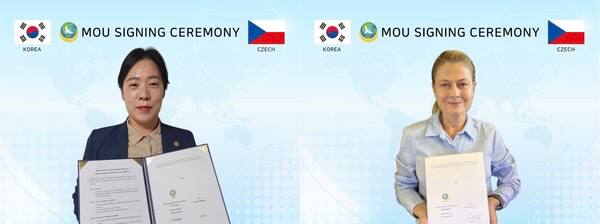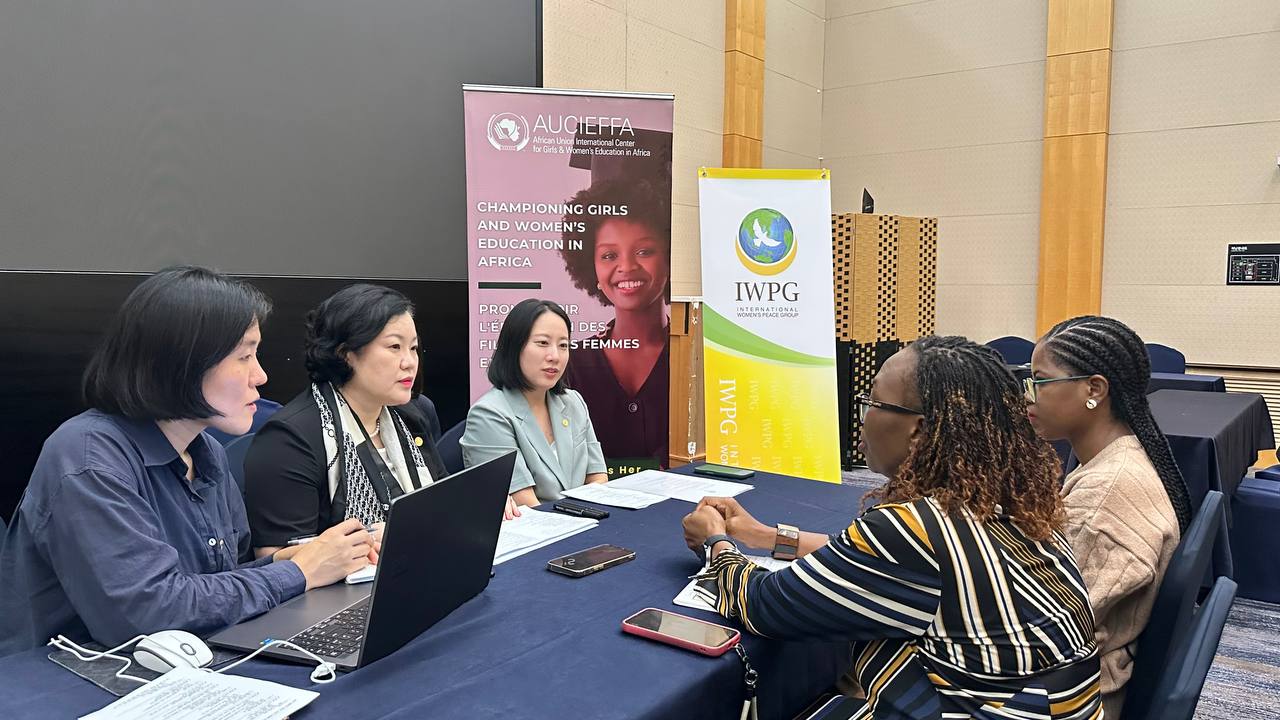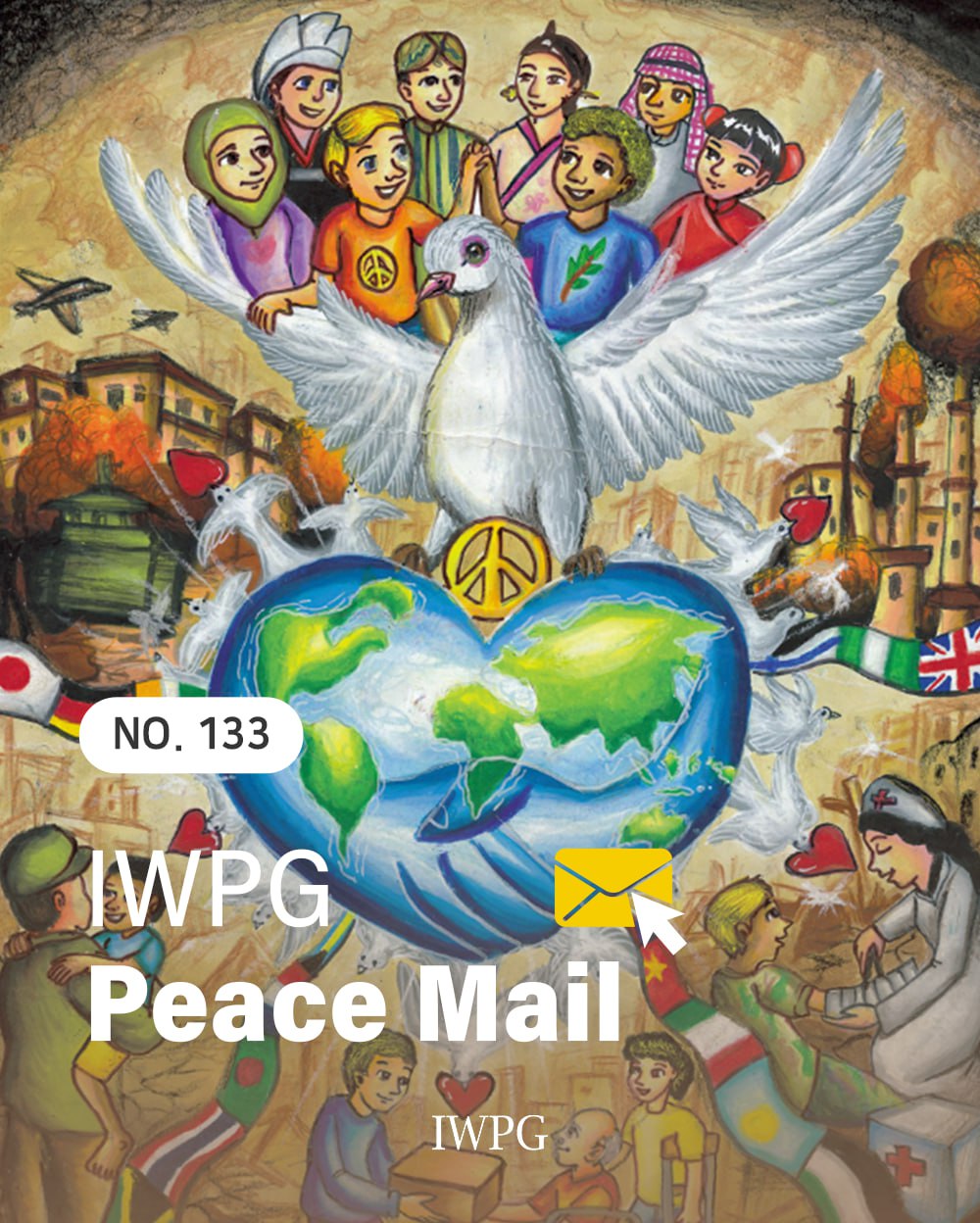“Peace starts from female leadership”… The world’s biggest women’s peace conference held in Cheongju
“Peace starts from female leadership”… The world’s biggest women’s peace conference held in Cheongju
Women leaders working for peace in all parts of the world scarred by conflicts and war have gathered in one place. The International Women’s Peace Group (IWPG, Chairwoman Na Yeong Jeon) held the 2025 International Women’s Peace Conference on Sep 19 at Enford Hotel in Cheongju, Chungcheongbuk-do Province.
The theme of the conference is “Beyond Conflict: Women’s Peace Leadership toward Hope and Recovery,” exploring sustainable peacebuilding methods with 800 participants from Korea and overseas. It is worth nothing that H.E. Bouaré Bintou Founé Samak, former Minister for the Promotion of Women, Children and Family of the transitional government of Mali; Dr. Faiza Abdulraqeb Sallam, Undersecretary of the Ministry of Culture of Yemen; and Hon. Aisha Al-Mahdi Shalabi, National Assembly Member of Parliament of Libya, who participated in this conference, are real female leaders living in past and present conflict zones.
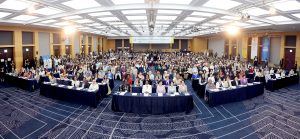
◆ Live peace messages from female leaders living in conflict zones
Session I of the conference highlighted the impact female leadership on peacebuilding has during conflicts and crises. Hon. Aisha Al-Mahdi Shalabi, National Assembly Member of Parliament of Libya, gave a keynote speech titled “The meaning of peace in an era of war,” laying out the role of women as exploring new opportunities of hope and resilience amongst war and conflict.
Next, H.E. Bouaré Bintou Founé Samaké, former minister of Mali, spoke on “The role and leadership of women amidst conflict and crisis,” emphasizing that women are not mere victims or helpers of peace, but key leaders to drive recovery and transition at the national level. Mrs. Kim Simplis Barrow, former First Lady of Belize, presented female leadership as the model of inclusive leadership under the theme, “The impact of female leadership on world peace.”
Dr. Amrita Kapur, Secretary General of Women’s International League for Peace and Freedom (WILPF), presented cases on how the international society has institutionalized peace through UN Security Council Resolution 1325 and the Women, Peace and Security (WPS) agenda.

◆ Women-led peace model proven from the grassroots
This conference went beyond theory or rhetoric to showcase real cases of women changing their communities. Hon. Maria Theresa Timbol from the Philippines shared her experience of changing Mindanao from a land of conflict to the cradle of peace, and Mrs. Boojoo Lakshm, Advisor on Gender Issues of the Ministry of Environment and Climate Change of Mongolia. presented a case on how peace and human rights expanded to the realm of diplomacy through feminist foreign policies.
Ms. Ruth A. Richardson, Secretary General of International Network of Liberal Women (INLW), analyzed how women’s participation and leadership in global issues such as the climate crises or water security can lead to inclusive and sustainable policies.

◆ Institutionalization of peace and exploring sustainability through education
The next part of the conference focused on institutionalization and education for sustainable peace. Ms. Mampurane Caron Kgomo, Deputy Director of the Gender and Diversity Management Unit of the Department of International Relations and Cooperation (DIRCO) of the Republic of South Africa, said that women’s participation can play a pivotal role in the institutionalization of peace along the DPCW.
Ms. Lee Hae-ryoung, an IWPG Peace Committee Representative and Finance Director of the North Korean Defectors’ Hope Club, proposed the role of women in peacebuilding on the Korean peninsula under the theme, “Women in civil society: for sustainable peace in a divided nation.”

◆ Sharing cases of spreading peace education all around the world
The second session, starting in the afternoon, covered the actual impacts and strategies of peace education. H.E. Mrs. Nasseneba Touré Diané, Minister of Women, Family and Children of the Republic of Côte d’Ivoire, presented a case on how IWPG introduced PLTE at a national level, and Dr. Faiza Abdulraqeb Sallam, undersecretary of the Ministry of Culture of Yemen, stressed the importance of peace education in conflict zones.
Mongolia is special because peace education has been introduced in the military. Mrs. Lkhagvasuren Nyamtsetse, Medical Supply Officer of the Air Force Command of the Mongolian Armed Forces, presented her achievement of providing peace education to 160 people within the army and the changes that brought.
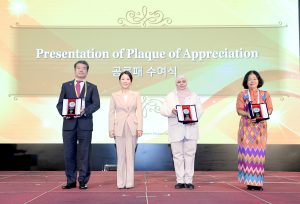
◆ Finding solutions through Peace Family Workshop
Immediately after the conference on the same day, the Peace Family Workshop took place at Uam Hall of Enford Hotel in Cheongju. This workshop gathered 90 key members of IWPG from both Korea and abroad, including Peace Committee Representatives, Publicity Ambassadors, and overseas branch managers, to discuss practical women’s peace strategies under the theme, “Women’s Leadership for Sustainable Peace.”
During the workshop, the participants were divided into different groups to review their individual goals and achievements as part of the peace family and discuss future challenges and opportunities with concrete action plans. 44 overseas participants, including Kinmumu Han, general secretary and deputy representative of Mandalay Young Women’s Christian Association; Bold Batsuvd, president of Mongolian Women’s Federation; and Karen Elizabeth León Romero, Representative of UNAM University Peace Committee, and 25 Korean participants came together to share their experiences and motivation with each other.
◆ Various content provided through diverse side activities
There were also various side activities prepared. On Sep 17, the final judging of the 7th International Loving-Peace Art Competition was held with prestigious artists from the Czech Republic, India, and Korea participating as judges. On Sep 18, the Peace Culture Lounge was opened for foreign guests so that they can experience traditional Korean culture, such as color salt or writing the traditional Korean alphabet, ‘Hangeul’.
IWPG Chairwoman Na Yeong Jeon said, “This event brings together women worldwide who have not stopped working and uniting for peace despite conflict and war. This moment will be a meaningful platform to discuss concrete action items for sustainable peace.”
This conference was simultaneously interpreted into 6 languages English, Korean, French, Spanish, Arabic, and Mongolian and livestreamed in 2 more languages Japanese and Czech.
Subscribe To Newsletter
We’d love to share everything we do with you. Sign up to stay informed.


